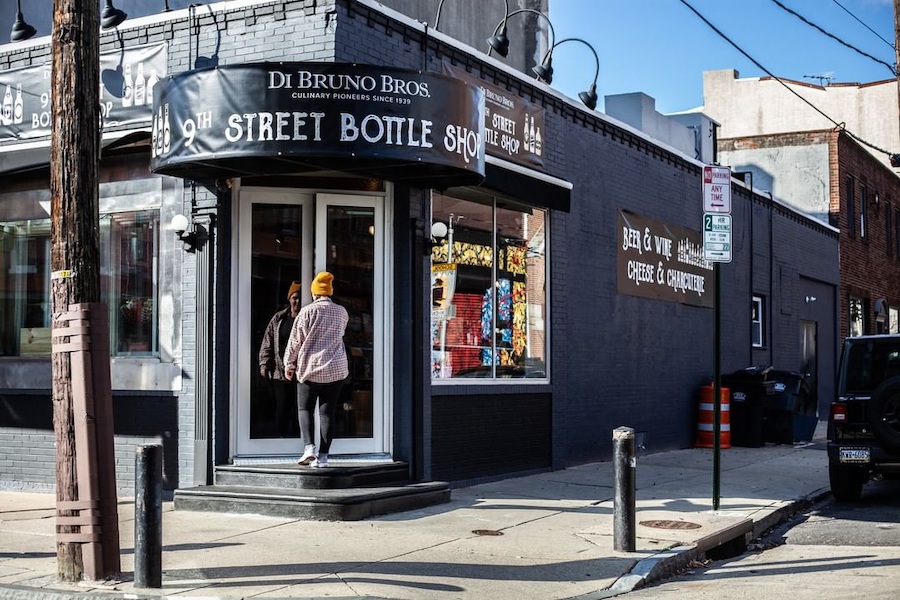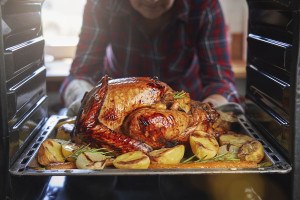The PLCB Continues to Hamstring Philly Wine Retailers and Dealers
Harrowed with a lawsuit, the PLCB has resumed its special order program for Philly restaurants and retailers. Now what?
Last week, two wine dealers that operate in the Philly region, MFW Wine Co. LLC and A6 Wine Co., sued the PLCB for violating a law written back in 2016. This violation incapacitated wine dealers from doing business during the COVID-19 shutdowns, rendering independent wine retailers — like the Di Bruno Bros. bottle shop in the Italian Market, or Vernick Wine in Rittenhouse, or Tinys in Port Richmond — paralyzed, unable to restock product that’s helping keep their businesses afloat during the coronavirus crisis.
The short of it, as explained to Philly Mag by Jason Malumed of MFW, goes like this:
The PLCB wine catalogue is broken into three basic categories: listed bottles (those generally available at any of the state stores), luxury bottles (only available at certain state stores), and special orders (which are typically the products independent restaurants, bars, and bottle shops deal with — the ones that help separate their menus from typical state store offerings). To stock up on those special order bottles, restaurant owners/retailers must place an order with a dealer (like MFW or A6), who will then send the order to any state store in Pennsylvania for the owner to go to (no delivery!), pay for (at retail price, with essentially no wholesale discount!), and pick up (in person!). But when the state shut down all Fine Wine & Good Spirits shops, it cut off dealers (like MFW or A6) from their restaurant and retail accounts.
Now, back in June 2016, Act 39 (the one that gave liquor licensees the ability to extend their licenses to sell wine to-go) said that by January 1st, 2017, the PLCB “shall” create a delivery procedure for special orders between dealers and licensees only, without having to make a stop at a state store (great!). A month later, Act 85 (an update to the state fiscal code) changed the “shall” to “may,” and extended the deadline to June 1st, 2017 — and it’s in those small differences that the PLCB allowed itself to ignore their original January 1st, 2017 deadline.
All this came to a head when the COVID-19 crisis hit the Philly food scene. When all the restaurants were shut down by the government, the only accounts wine dealers had left were with restaurants and retailers with those extended liquor licenses. Thing is, those restaurants and retailers can’t pick up their product if the Fine Wine & Good Spirits shops are closed.
Malumed says that when he first raised the issue with his contact at the PLCB, he got a canned response:
Jason,
Thank you for your inquiry regarding the temporary suspension of the Special Order program.
The PLCB is making difficult decisions, in consultation with the Wolf Administration and public health officials, in an effort to mitigate the COVID-19 public health crisis. We understand the disruptions some decisions have on consumers and licensees across the commonwealth, but in these unprecedented times, the health and safety of our customers, employees and communities are of paramount importance and must take priority over the sale of alcohol.
The suspension of the Special Order program is temporary, and we are exploring options for how and when to restart the program. Just for clarity, all restaurants and bars have been ordered to suspend all on-premises consumption of food and alcohol, and only holders of wine expanded permits may continue selling wine to go. To that end, direct deliveries from our distribution centers to high-volume grocery and convenience stores holding wine expanded permits continues uninterrupted at this time.
We thank you for your patience and understanding as we monitor ever-changing conditions and develop plans to support our employees, licensees, suppliers and customers to the best of our abilities in these uncertain times.
According to the Inquirer, last Thursday, MFW and A6, “represented by Montgomery McCracken Walker & Rhoads LLP, asked the Commonwealth Court for an emergency order to force the liquor control board to ‘implement a procedure for direct delivery of wine,’ as required by the 2016 law that also allowed supermarkets to start selling wine.” On Friday, after reviewing their complaint, motion, and brief, the court decided to grant their application for an expedited hearing.
Here’s where it gets interesting: Today, April 20th, in conjunction with its newly implemented curbside pickup option, the PLCB has re-opened its Special Order program. Licensees can place orders starting Wednesday, April 22nd, and dealers will have to deliver the orders by Thursday, April 23rd. On Friday, April 24th, licensees can pick up the order (at a pre-scheduled time) from one of 14 designated PLCB locations in the state. That’s basically one store per county — meaning one pickup location servicing all of the licensees in Philadelphia. That’s a lot of people fitting inside one place in a time when lots of people shouldn’t be trying to fit into any place.
Meanwhile, restaurants and retailers are now in a mad dash trying to place pent-up backorders, dealers are scrambling to change their shipping schedule, and all the while, vague instructions were given to restaurant owners and retailers on when or how to schedule their pickup.
In a text message, Sande Friedman, wine buyer for Di Bruno Bros., says, “[The PLCB] gave extremely limited instruction that was entirely dependent on scheduling appointments. There are no responses at any of the phone numbers that they gave us to schedule appointments. So, as of right now, our hands are still tied. The only clear understanding is that we can pay into the portal again (money to them), but no confirmation that we can even get the product.”
“Sadly, this is a forced, shortsighted, partial-solution that does not address the needs of licensees, vendors, or the public,” says Malumed.




